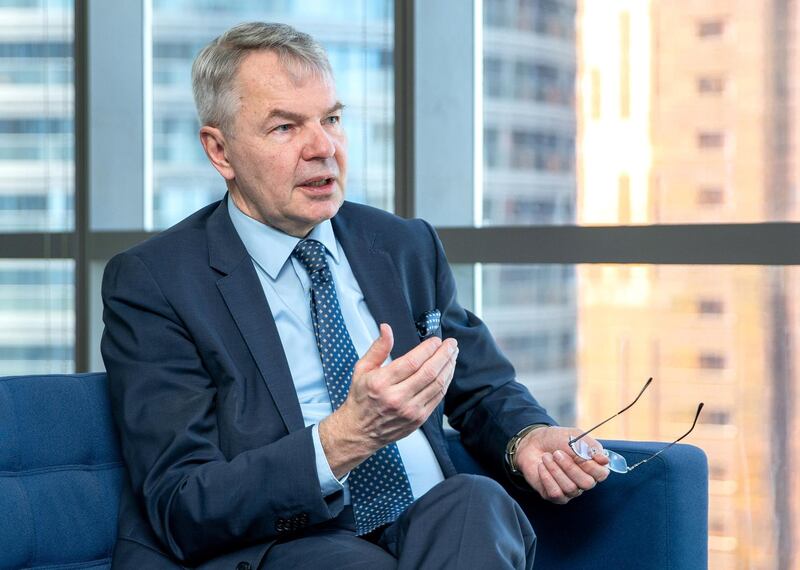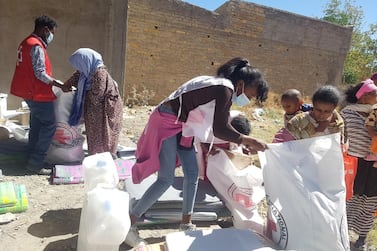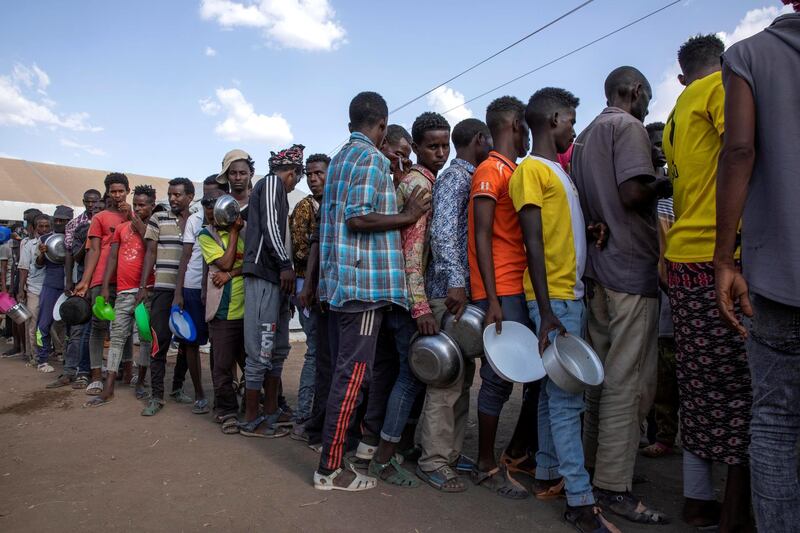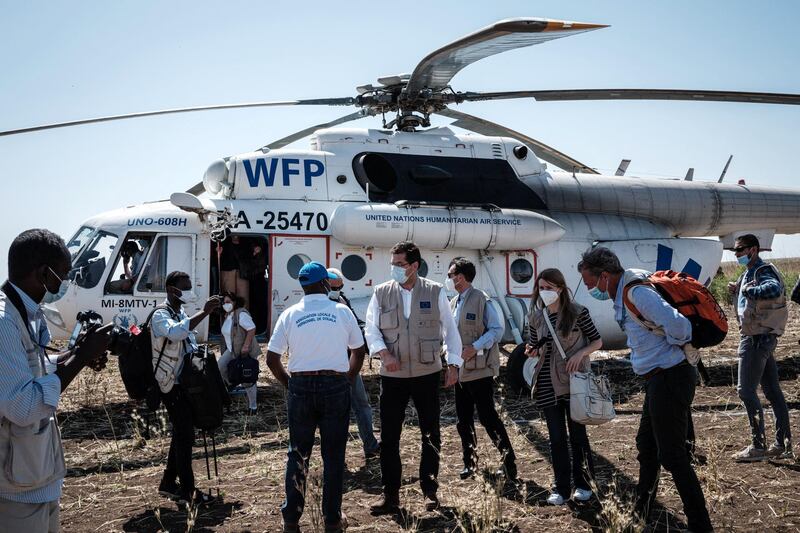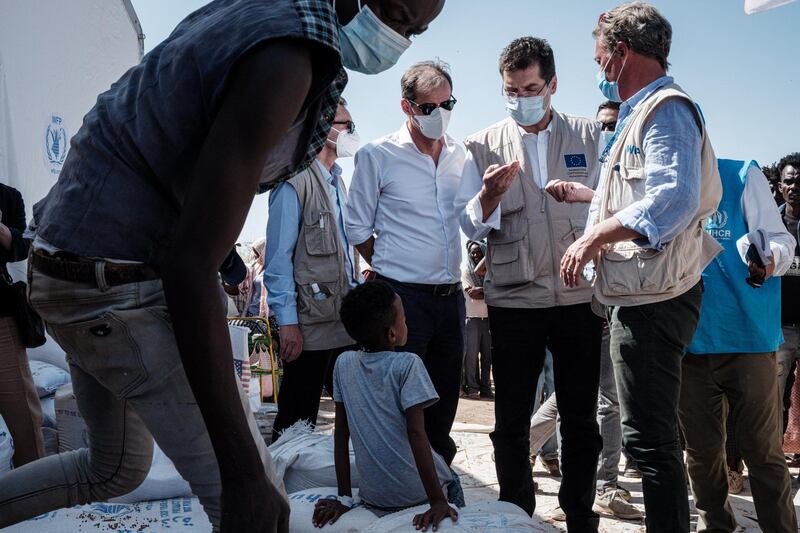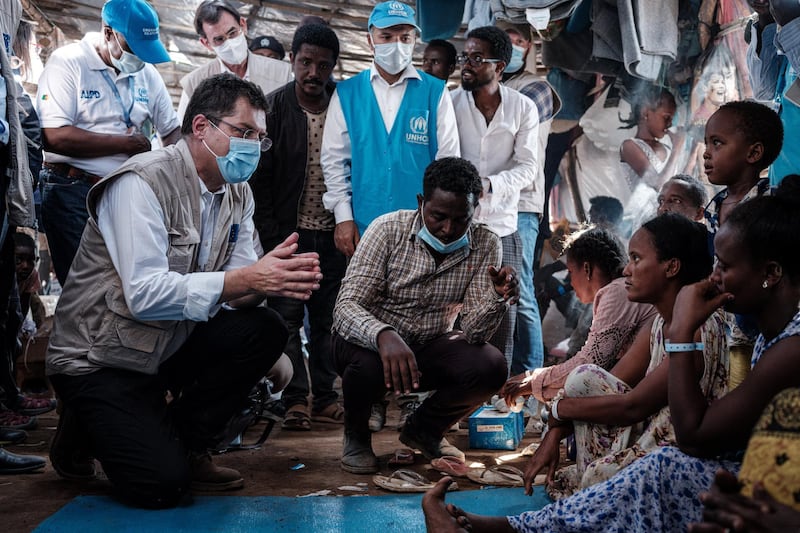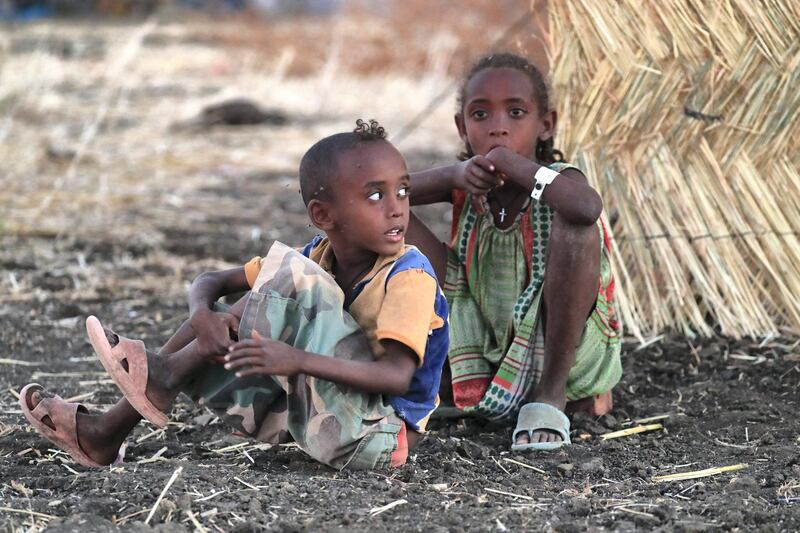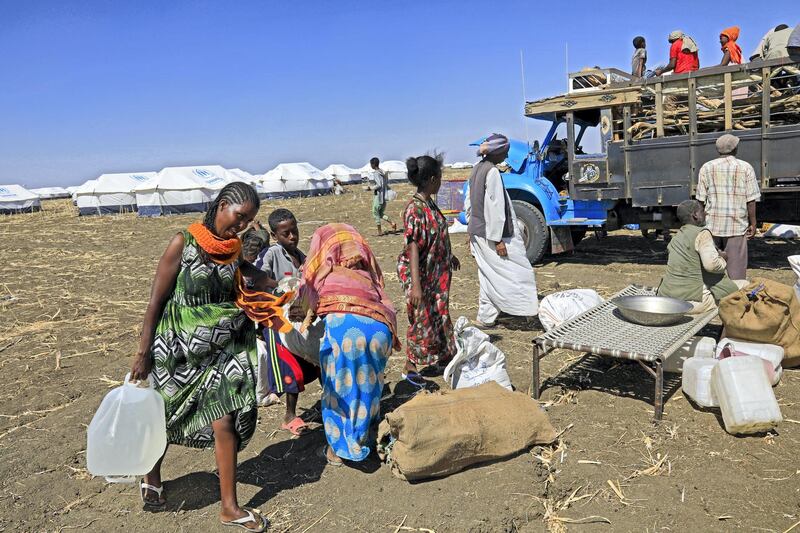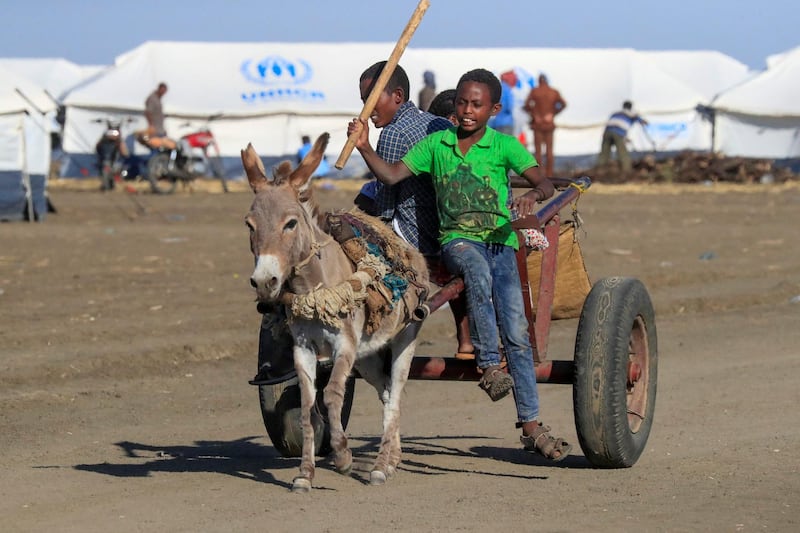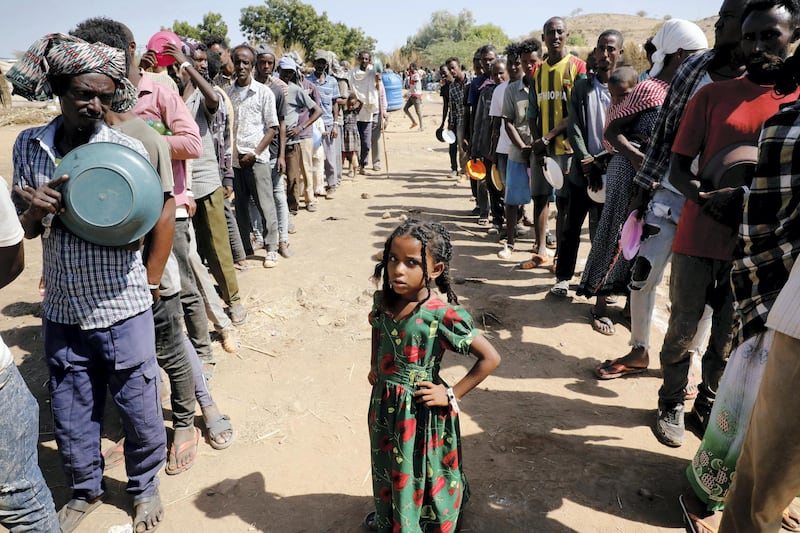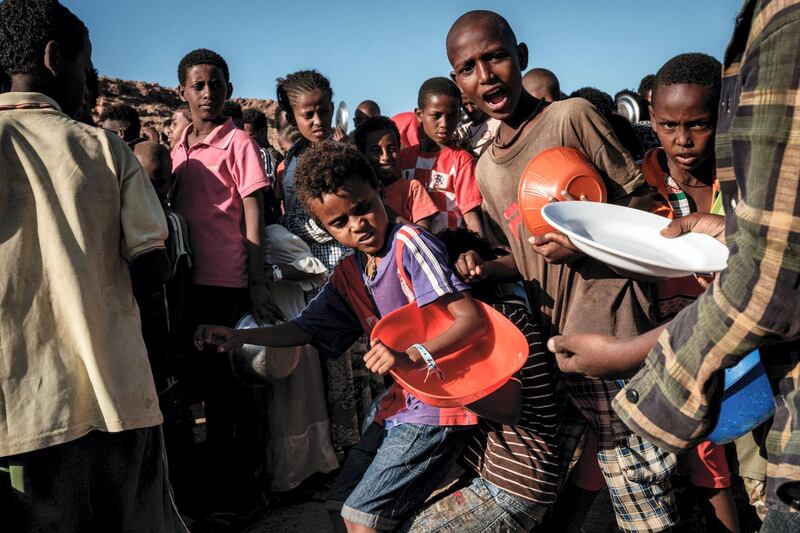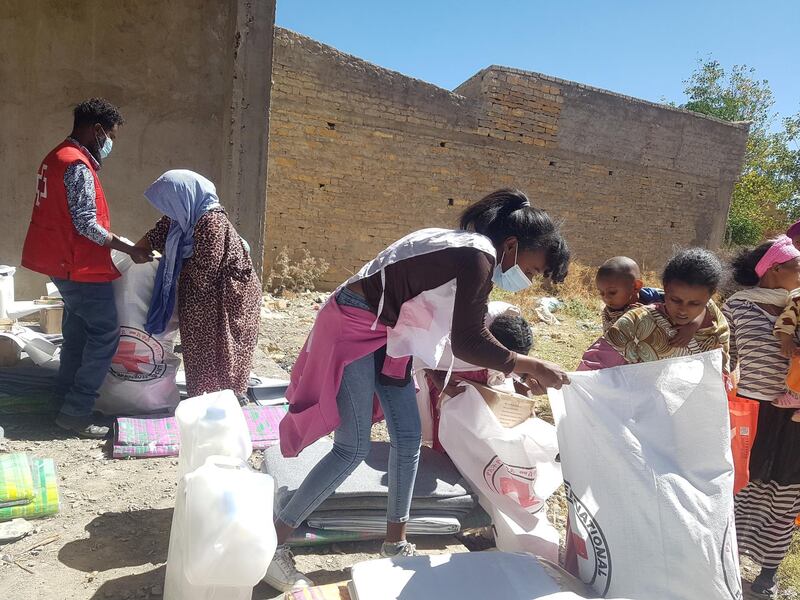The "turbulence and crisis" in Ethiopia's Tigray region risks leaving a vacuum for extremist groups to spread unless the world works together to resolve it, the EU's special envoy to the conflict said on Tuesday.
Hundreds of thousands were displaced inside Ethiopia and across the border into Sudan as the government launched an offensive in November.
Stopping in Abu Dhabi en route to Addis Ababa for a second visit, Finland's Foreign Minister and the EU's Special Envoy Pekka Haavisto told The National in an exclusive interview that work must be done to stop groups such as Al Qaeda taking advantage of the crisis.
"I will add to the refugee and humanitarian crisis another key concern for us, which is radicalisation due to conflicts, as militants of Al Qaeda take advantage of conflicts and marginalisation," said Mr Haavisto.
"Take the Al Shabab movement as an example. This turbulence and crisis fuels radicalisation," he said referring to Al Qaeda-allied militants battling the UN-backed government in Somalia.
Over the past two decades since the 9/11 attacks, the Horn of Africa – Kenya, Ethiopia, Djibouti, Somalia, Eritrea and Sudan – has become a focal point in the US-led war against terrorism.
Intelligence agencies have scrutinised the region as organisations designated as terrorist by the US have used some countries as transit points or established strongholds as Al Shabab did in Somalia.
The Ethiopian government is seen by the US State Department as a key partner in counterterror missions in Africa.
"These militants feed on seeing countries disintegrating. It’s a common concern for Europe, the Gulf and everyone."
The unrest threatens to raise the spectre of another issue the EU has grappled with over the last decade: an influx of refugees from the Middle East and Africa taking huge risks on perilous journeys across the Mediterranean to seek asylum in European nations.
Those countries have chosen different paths to deal with the increase in migrant numbers. Policies varied from extending open arms as Germany did, to closing borders with fences like Hungary.
Now, the EU is trying to help find a way to stop the new conflict in Ethiopia that has forced hundreds of thousands from their homes. With access difficult, the death toll is impossible to confirm, with the government saying no civilians were killed in the offensive and opposition parties in the area saying more than 50,000 are dead.
“I visited a refugee camp on the border between Sudan and Ethiopia for people fleeing the conflict in Tigray and there were around 20,000 people," said Mr Haavisto.
"We don’t want to have a donor-recipient relationship but we want to be on equal footing with partners in Africa to solve this problem."
Mr Haavisto has vast experience in African conflict resolution.
He served as the special representative to the Finnish Minister for foreign affairs in African crises between 2009 and 2017 and the EU Special Representative for Sudan and Darfur from 2005–2007.
In February, he was mandated by the EU High Representative Josep Borrell to embark on a second mission to Addis Ababa.
He said he had pressed the Ethiopian government to give full humanitarian access in Tigray, launch an independent investigation of human rights atrocities and to instruct Eritrea's withdrawal from the conflict.
He warned the EU may withdraw funding if these conditions are not met.
"It’s very difficult in such circumstances to meet different stakeholders, but the message is very clear and the EU might postpone some of its funding in Ethiopia. We want to make sure the people of Tigray are getting the help they need.”
The conflict in northern Ethiopia broke out in November when government forces launched an offensive to oust Tigray's ruling party from power after they sought independent elections and then its fighters attacked military bases in the region.
Ethiopia has a federal system and the Tigray People's Liberation Front locked horns with Prime Minister Abiy Ahmed over the future of the political system in the country.
Human rights groups and aid organisations have documented mass killings, rape and a myriad other abuses committed by the warring parties.
The happiest country in the world
Mr Haavisto kicked off his second visit to Ethiopia this year with a regional tour. He visited Saudi Arabia on Sunday.
In Abu Dhabi on Monday, he met Minister of State Sheikh Shakhbout bin Nahyan, Minister of State for International Co-operation Reem Al Hashimy and Deputy Secretary General of the Supreme National Security Council Ali bin Hammad Al Shamsi.
"We focused on Finland's participation in Expo 2020 Dubai. Up to 70 Finnish companies will be represented in our pavilion," said the minister.
Finland and the UAE share a dedicated goal. They both want to see their people happy.
The UAE created a ministerial role for happiness in 2016 while Finland has been dubbed the happiest country in the world for the fourth year running, followed by three of its Nordic sisters Norway, Denmark and Iceland, according to the World Happiness Report, a publication of the UN's Sustainable Development Solutions Network.
The UN index of happiness is mainly based on GDP per person, the fight against corruption and life expectancy.
Asked about the secret to Finland’s happiness, Mr Haavisto said his country prides itself on equality, the empowerment of women and a clean environment.
“It’s about equality, men and women are equal, free schools offer quality education that supports boys and girls, good free health care – you get the same treatment irrespective of your social status."
He said equality was a basic right among the people in Finland.
"The president, for example, was waiting in the queue for the coronavirus vaccine depending on his age group. He got it later when his turn was due,” he said. "This is the basis of trust."
While women find it hard to obtain top government jobs in many countries, Finland’s voters in 2019 chose Sanna Marin to lead a coalition government.
She became the youngest serving prime minister in the world at 34. The heads of the four other parties in the government are also in their 30s.
“It’s more than a hundred-year-old story. A long time ago we used to say the first female minister, the first female member of parliament. We did step by step in Finland. Women are now in all professions. We have now for example female motorcycle police, and, of course, we have female pilots in the commercial sector,” said Mr Haavisto, a former presidential candidate in 2012 and 2018.
But how can a country that struggles to get sunshine most of the year be the happiest in the world?
The Finnish top diplomat was ready with a laugh: “I can ski to work and we have a good central heating system inside. But we do miss the sunshine.”
